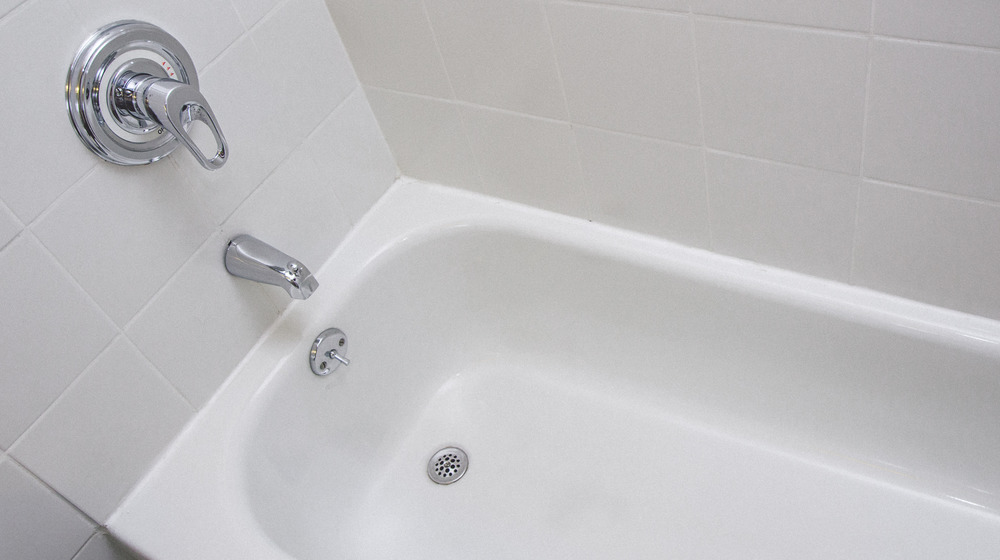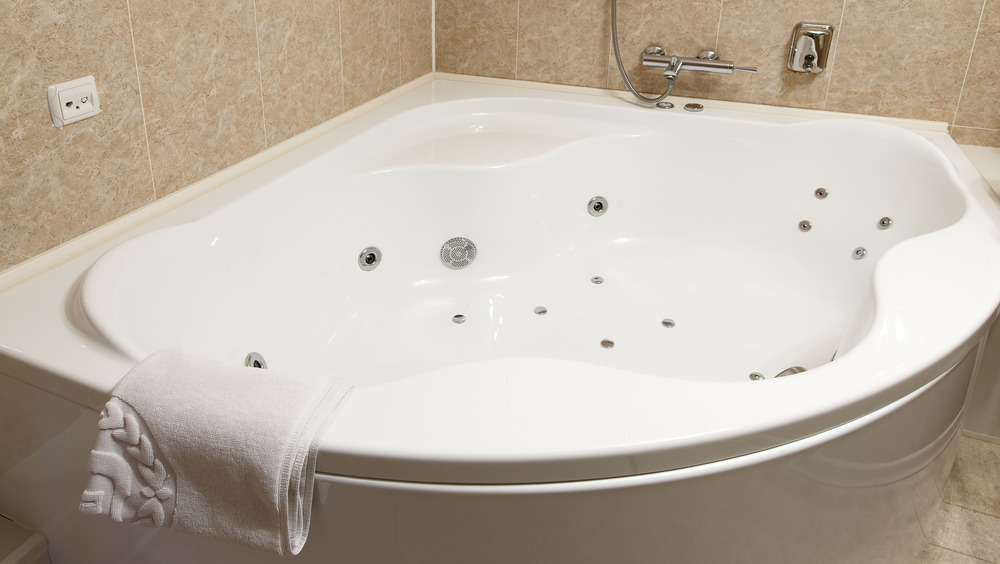The Hidden Dangers Of Taking A Bath In A Hotel
We've all heard cautionary tales about the potential germs lurking in hotel rooms. Maybe you've found yourself wondering at one point or another just how clean that bedspread is. As it turns out, the bed is not the only area with cause for concern. It's no secret that germs are easily spread through commonly touched surfaces. Doorknobs and light switches are prime examples of items that get touched throughout the day by many different hands. Additionally, research suggests another frequently touched surface to take into consideration is the hotel bathtub.
Any moist, humid environment is a prime spot for bacterial growth and the tub is no exception. When bathing, it's possible you may be submerging yourself in water containing bacteria and residue from cleaning products (via The Healthy). In fact, studies have shown that hotel rooms may be more unsanitary than other highly populated spaces such as airplanes or schools.
Another study examined the cleaning routines of various hotels and found that on average, cleaning staff spent around thirty minutes in each room (via Condé Nast Traveler). Further research determined that some of the tools staff used for cleaning, such as sponges, had the highest risk of contamination. When these same items are used to clean the surface of the tub, it fosters the transfer of germs.
Hotel bathtubs have been found to contain infection causing fungi and bacteria
Experts also suggest there are even further increased health risks associated with whirlpool tubs (via Travel and Leisure). Rita B. Moyes, PhD, at the Department of Biology at Texas A&M University, conducted a study of forty-three tubs (via Infection Control Today). In every one of the tubs, the presence of fungi and bacteria were found, some of which are known to cause any number of infections from the intestines to the respiratory system, including urinary tract infections, septicemia, and pneumonia, among many more. The source of the contamination is often traced back to the bathtub pipes where bathwater lingers and harbors bacterial growth. But soaking is not the only way infection can be spread. Experts caution that contaminants can also be inhaled from the warm, moist air surrounding the tub while bathing.
Going forward, whether or not you choose to skip that luxurious bubble bath the next time you're on vacation is entirely up to you. Bringing along your own cleaning products can also be a way to help keep peace of mind. Furthermore, experts remind us that the chances of contracting infections are highest from direct contact with others rather than from surfaces, and that any potential germs found in bathtubs are not likely to be problematic for those in good health (via Smarter Travel).


